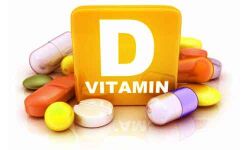- Home
- Medical news & Guidelines
- Anesthesiology
- Cardiology and CTVS
- Critical Care
- Dentistry
- Dermatology
- Diabetes and Endocrinology
- ENT
- Gastroenterology
- Medicine
- Nephrology
- Neurology
- Obstretics-Gynaecology
- Oncology
- Ophthalmology
- Orthopaedics
- Pediatrics-Neonatology
- Psychiatry
- Pulmonology
- Radiology
- Surgery
- Urology
- Laboratory Medicine
- Diet
- Nursing
- Paramedical
- Physiotherapy
- Health news
- Fact Check
- Bone Health Fact Check
- Brain Health Fact Check
- Cancer Related Fact Check
- Child Care Fact Check
- Dental and oral health fact check
- Diabetes and metabolic health fact check
- Diet and Nutrition Fact Check
- Eye and ENT Care Fact Check
- Fitness fact check
- Gut health fact check
- Heart health fact check
- Kidney health fact check
- Medical education fact check
- Men's health fact check
- Respiratory fact check
- Skin and hair care fact check
- Vaccine and Immunization fact check
- Women's health fact check
- AYUSH
- State News
- Andaman and Nicobar Islands
- Andhra Pradesh
- Arunachal Pradesh
- Assam
- Bihar
- Chandigarh
- Chattisgarh
- Dadra and Nagar Haveli
- Daman and Diu
- Delhi
- Goa
- Gujarat
- Haryana
- Himachal Pradesh
- Jammu & Kashmir
- Jharkhand
- Karnataka
- Kerala
- Ladakh
- Lakshadweep
- Madhya Pradesh
- Maharashtra
- Manipur
- Meghalaya
- Mizoram
- Nagaland
- Odisha
- Puducherry
- Punjab
- Rajasthan
- Sikkim
- Tamil Nadu
- Telangana
- Tripura
- Uttar Pradesh
- Uttrakhand
- West Bengal
- Medical Education
- Industry
Why Vitamin D deficiency causes more Autism spectrum disorder in boys

A deficiency in Vitamin D on the mother's side could explain why Autism spectrum disorder is three times more common in boys, say researchers from The University of Queensland.
In their latest study, Professor Darryl Eyles and Dr Asad Ali from UQ's Queensland Brain Institute found vitamin D deficiency during pregnancy caused an increase in testosterone in the developing brain of male rats.
"The biological cause of Autism spectrum disorder (ASD) is unknown but we have shown that one of the many risk factors--low vitamin D in mothers--causes an increase in testosterone in the brain of the male foetuses, as well as the maternal blood and amniotic fluid," Professor Eyles said.
"In addition to its role in calcium absorption, vitamin D is crucial to many developmental processes.
"Our research also showed that in vitamin D-deficient male foetuses, an enzyme which breaks down testosterone was silenced and could be contributing to the presence of high testosterone levels."
Professor Eyles' previous research has shown that vitamin D plays a critical role in brain development and that that giving vitamin D supplements to mice during pregnancy completely prevented ASD-like traits in their offspring.
Co-author Dr Ali said that excessive exposure of the developing brain to sex hormones like testosterone was thought to be an underlying cause of ASD, but the reasons remained unclear.
"Vitamin D is involved in pathways controlling many sex hormones," Dr Ali said.
"When the rat mothers were fed a low vitamin D diet, it caused male foetal brains to have high levels of exposure to testosterone."
Professor Eyles said the study was the first to show that a known risk factor for ASD alters testosterone in both the foetal brain and the mother's blood -- one possible contributor to why ASD is more prevalent in males.
"We have only studied one risk factor for ASD -- vitamin D deficiency during development -- our next step is to look at other possible risk factors, such as maternal stress and hypoxia - lack of oxygen - and see if they have the same effect," he said.
https://molecularautism.biomedcentral.com/articles/10.1186/s13229-020-00399-2
Hina Zahid Joined Medical Dialogue in 2017 with a passion to work as a Reporter. She coordinates with various national and international journals and association and covers all the stories related to Medical guidelines, Medical Journals, rare medical surgeries as well as all the updates in the medical field. Email: editorial@medicaldialogues.in. Contact no. 011-43720751
Dr Kamal Kant Kohli-MBBS, DTCD- a chest specialist with more than 30 years of practice and a flair for writing clinical articles, Dr Kamal Kant Kohli joined Medical Dialogues as a Chief Editor of Medical News. Besides writing articles, as an editor, he proofreads and verifies all the medical content published on Medical Dialogues including those coming from journals, studies,medical conferences,guidelines etc. Email: drkohli@medicaldialogues.in. Contact no. 011-43720751


